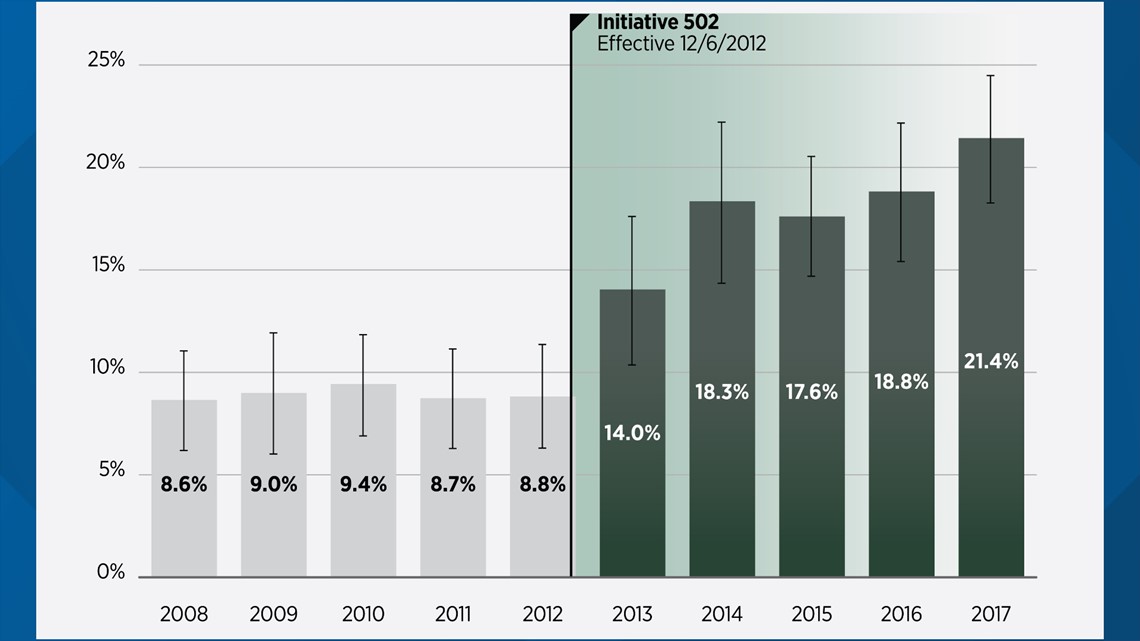SEATTLE — An increasing number of Washington state drivers involved in fatal crashes are testing positive for THC, the psychoactive ingredient in marijuana, according to a recent study from the AAA Foundation for Traffic Safety.
AAA found the number of drivers who tested positive after a fatal crash in Washington has doubled since the state legalized marijuana in 2012.
According to AAA, between 2008 and 2012, the five-year period before marijuana was legalized, an estimated 8.8% of Washington drivers involved in fatal crashes tested positive for THC. The study found that number climbed to an average of 18% between 2013 and 2017.
AAA said they chose Washington for the study in part because the state is very thorough at recording data in the wake of fatal accidents. However, the study could have national implications.
“This study enabled us to review a full 10-years’ worth of data about the potential impact of marijuana on driving safety – and it raises significant concerns,” said Dr. David Yang, executive director of the AAA Foundation for Traffic Safety. “Results from the analysis suggest that legalization of recreational use of marijuana may increase the rate of THC-positive drivers involved in fatal crashes.”


While its effects vary by person, Marijuana can slow reaction time, cloud judgment, and inhibit concentration. AAA said there is no data that reliably shows what level of THC impairs driving.
AAA calls the increase in drivers involved in fatal crashes testing positive for THC disturbing. The organization opposes the legalization of marijuana for recreational use because of traffic safety risks and the difficulties involved in writing legislation.
“Simply put, if you’ve used marijuana, don’t drive,” said Jake Nelson, AAA’s director of traffic safety advocacy and research. “And if you plan to drive, don’t use marijuana.”
Jennifer Cook with AAA Washington said more study is needed as marijuana effects different people differently. Marijuana can last in somebody’s system for days and weeks.
The study does not just look at drivers who were legally over the limit. Just drivers who had detectable amounts. And although drivers were involved in fatal crashes where most died, the study notes that “drivers that tested positive were not necessarily impaired.” And that THC-positive drivers were not necessarily at fault in crashes, as the study “did not examine fault for crashes at all.”

